Katia and Lior (Wedding at First Sight, Keshet 12)
Sigal Shahmon is looking for the one to introduce to her parents, Nelly Tager is looking for a match for her mother and "Hatunami" came up with it before both of them - the dating reality in Israel turns from a couple to a family.
It's not just that.
Since "The Bachelor" and "Take Me Sharon" (you may now be having a strong flashback to the early 2000s) a lot of water has passed under the dating reality bridge, in the world in general, but in Israel, the change is even more noticeable.
While in the world the old and classic formats continue for double-digit seasons, in Israel they have lost their cool.
The luxury, formality and grandiose productions were replaced by the popular locations of the participants' homes, the suits and evening dresses were replaced by sweatpants and the magical candlelit dates were replaced by awkward meals with mom, dad and seven cousins and sisters.
So what happened to reality dating in Israel, and why precisely at his advanced age did he return to live in his parents' house?
Dr. Alina Bernstein, lecturer for television and reality at the College of Management and Tel Aviv University, goes back to the sources.
According to her, in order to understand why dating programs in Israel have changed, one must first answer the question of why, at the beginning of their journey, they copied the American formats one for one.
First of all, it was easy.
Easy and possible.
"At that time, there weren't a lot of viewing options for the audience, so a lot of people saw 'Take Me Sharon,'" claims Dr. Bernstein. "It was a sensation.
To this day we remember characters who were there, like Rodrigo Gonzalez for example."
And why did they stop with that? Why did the American "Bachelor" continue to run for 25 seasons so far, and in Israel it survived for two?
"Today, when we are so exposed to what is happening in the world, people are no longer ready to watch formats that look like second-hand on Ali Express. I admit that I have not seen 'The Group', but I know what it is about and I think that people who have seen 'The Circle' on Netflix say, 'Well , we were there'. At first they would do things that were done in other places and 'convert them', and to a certain extent this is still true, but we also invent formats and do innovative things."
A huge success.
Mai and Moshe (photo: courtesy of the photographers, Moshe Yehezkel)
If you think of "authentic" in this context, it is a "gay" format - but in the full sense of the word.
If we didn't know that it was imported from abroad, it would be possible to think that it is completely Israeli. First of all, due to the initial preoccupation with the wedding ceremony, in a society where it really seems sometimes that the arrangement of flowers is more important than the relationship that comes next to it. But that is not the reason, according to Dr. Bernstein, That the Israeli audience is carried away by "Hatunami".
"We live in an age where it is very difficult for young people to find a relationship," she says.
"I hear about a lot of difficulty in the world of apps, where they refuse to commit and the selection is huge. We want to believe that despite this there is our one, that there is true love and that it is possible to find it and overcome difficulties. In this world, Hatunami has already today positioned itself as one that really Couples come out of it, so there is truth here."
This "truth" that Dr. Bernstein talks about, lies not only in successful couples (although they are few,
Despite the criticism leveled at it by its former contestants, who claimed manipulative editing and severe pressure from the production side, outwardly a product was received that seemed authentic from its predecessors.
Any manipulations that were used were exposed for all to see, and were brought before us in the guise of the experts.
That is, even what stank and reeked of production interference was revealed before us, which, ironically, bought our faith in what seemed real.
We criticized the experts for their lack of professional integrity and for denigrating the treatment profession at a time when we believed in the good faith of the program participants, or at least most of them.
Most of them spoke with extraordinary sincerity, and this sincerity won the hearts of the audience.
"We live in a world where it is desirable and permissible to talk about difficulties," according to her.
"Men cry, mothers openly complain about their children and we are ready to see the difficulties and struggles that love has."
Creating credibility is especially necessary these days, when the sensitivity to counterfeiting is higher than ever.
These are no longer the innocent days of the beginning of reality TV, so we believed that at least most of what we were shown really happened, and we were not aware of the power of the editing room.
"I have a teenage daughter," says the doctor, "and she is so sensitive to 'faking', maybe because of Tiktok."
After all, the children today create their own reality shows, for example, my daughter just made a video with her friend of them tasting doughnuts.
They know how to produce content themselves, and a lot of reality TV viewers come from this age group."
In short, it's hard to work with them.
"Completely."
There is also a feeling that, perhaps for the sake of credibility, today more than ever the private lives of the candidates are entered. Let's say, I don't remember being told Too much about who Sharon Ayalon is and who her parents and siblings are and what happened to her as a child.
"Certainly not at this level. Today they make sure to enter the lives of the participants on a completely different level, and what they didn't reveal in the program will be revealed later in interviews and on the networks. By all means, they get into their recesses. Then the viewers also meet them on the street, because we are a small country, and then they also pry and enter in. This is very typical of our country, and the reality show reflects it. And our families arrive very, very quickly, on television as in reality. We are a very family-oriented country."
good to know (in advance)
Smoother skin after just one use with a revolutionary device for home care
Served on behalf of B Cure Laser
A young woman who had an abortion says "my partner called me a murderer"
The "king" who slept with 17 women a week advises 18-year-old men: this is how you will get "equal girls"
pregnant.
Katia Valior (photo: screenshot, Keshet 12)
If there is anyone who can sympathize with Dr. Bernstein's last words, it is the survivor of the last season of Hatunami, Ben Avivi, who has been crowned the season's dosh many times by the writer of this article. Rather appreciatively, he agreed to be interviewed and volunteer his angle on the subject here. Indirectly, his words explain to some extent the root of his doshish behavior at the time.
"Most people in Israel, what they say about us is very important to us," says Avivi. "We feed on environmental feedback both on a conscious and subconscious level, and we need approval from the environment." About himself during the filming , he says, “I didn't really know that my family's words and behavior had such an effect on me.
I only knew this in retrospect when I watched the show.
You see me there trying to avoid their feelings without knowing that I am really affected by them."
One segment that aired in the show is particularly memorable to him as representing the family's satisfaction mechanism: "At some point I said, 'Guys, lower your expectations,' but I didn't realize how much their expectations hurt me at that moment, and how much they influence my decision-making."
How much, in general, does family influence your life choices?
"Very. The environment as well, in general. There is something about 'Am Yisrael Achim' that creates a very large and very problematic family, because we all also walk around with a lot of traumas. And everyone feels that they have a stake in me, my life, my relationship."
Were your parents always involved in your relationship like in the show?
"Involved without being involved, because on the one hand they say 'do what's best for you' and on the other hand the stress is felt, the papers are felt and the preferential treatment for those who married into the family - is felt."
Today you are in a happy relationship, 4 months, how soon did she meet the family?
"
"Really" (laughs).
"I said, this is not the way."
Everyone agrees on this, for better or for worse - perhaps mostly for worse - "All Israel is brothers."
If so, it was only a matter of time before the local reality show would grow into the local identity and culture, and reflect its customary snobbery.
In this sense, "Khatunami" was a breakthrough: it got into the souls of the contestants and their families more than we had seen before in any dating program, and set a new standard for the concept of "exposure".
"We'll see cheap formats, without too much editing" Kits Barbner (photo: courtesy of those photographed, Guy Ben Baruch)
According to Maariv Online's cultural correspondent Kitz Brebner, who reveals in his lecture "Behind the Headlines" the lies and manipulations of the reality show world, the success of "Hatunami" was not at all understandable by Ilya.
"A seemingly simple reality show, in a fairly niche world, one of many," according to his definition.
If so, what made it catch on in Israel?
According to him, the secret of its success lies, above all, in science.
"The program gave a scientific solution to an existential problem," he sums up simply.
"We've all had our hearts broken, we've all been on Tinder and we've all suffered. Suddenly they tell you to fill out a questionnaire, we'll smell the living room for you and find you love. And even when you don't succeed, there will be two experts there who will tell you to try again to justify this match."
But also the family thing, Rabner agrees, has a role in the success of "Hatunami", and this element becomes more and more evident as the seasons progress.
To remind you, in the first seasons of the show we received parental presence in the canopy, and then in an episode or two.
In the last season, there was already talk of a concern that the bride might be too attached to the groom's family, for example the above-mentioned Ben Avivi and his partner in the Maayan Dori show.
In the new program of Sigal Shahmon, the position of the family was jumped until it seemed that it was equal to the bride in the choice of the groom. For the Tel Aviv viewer, the immediate encounter of the date with the family may seem completely far-fetched, but Brebner is here to remind that the State of Israel is not Tel Aviv. "Outside of Tel Aviv, this culture of 'mother has to approve the benzo' is still very strong," he says.
Stingy or big: how much do Israelis pay for an engagement ring?
Why are men so obsessed with your breasts?
Here is the most surprising reason of all
Alina Bernstein (Photo: Alex Beck)
But there is another reason, he says, that dating shows have moved from a fancy penthouse to a mom's house.
And that reason is very simple: money.
"Shooting in people's homes is also very cheap to produce," says Brebner.
"Using families is also cheap for production. In Israel we don't have budgets for overseas and today the budgets are even smaller, because far fewer people watch commercial television, and that's after the pie was divided into two channels with the split of Channel 22. And yes, it sucks to see the lack of flight and the poverty The budget."
This poverty also has value, there is something intimate about it. On the other hand, sometimes it is already too similar to reality, to what we know.
"In 'the group' I felt like friends were sitting at my house in the living room, scrolling through Tinder and throwing jokes at me about people they see on the app.
Then why should I watch TV at all?".
But we can't stand being too far from reality either. Regardless of the budget,
"That's also true. We're a country where you wear flip flops to the office, so the suit culture doesn't fit here. We have a disgust with the exaggerated and exaggerated characters, like Avivit Bar Zohar and Shai Chai. After a long period of them, there is a trend of going to places that evoke more identification, where we can To see our neighbor, our friend from work. We also see it at the level of external appearance. Today's married men and women are more 'normal', and not all of them are models' sizes."
If so, where are we headed?
"In my opinion, reality TV in Israel will continue to go in the simple direction. Both because of an economic interest, and also because it is us - cameras at home, 'connected' style. Television will look more and more like life. This is also related to Instagram and Tiktok, already today more and more people are taking pictures of themselves on their phones And they also have high-quality cameras there. We'll see cheap formats, without too much manipulative editing. This is what the younger generation wants. There must be someone who will lift the glove and make such content adapted to the new generation, who don't watch TV at all but are on Tiktok."
Sheee
sex and relationship
Tags
A wedding at first sight
Love
relations
reality show

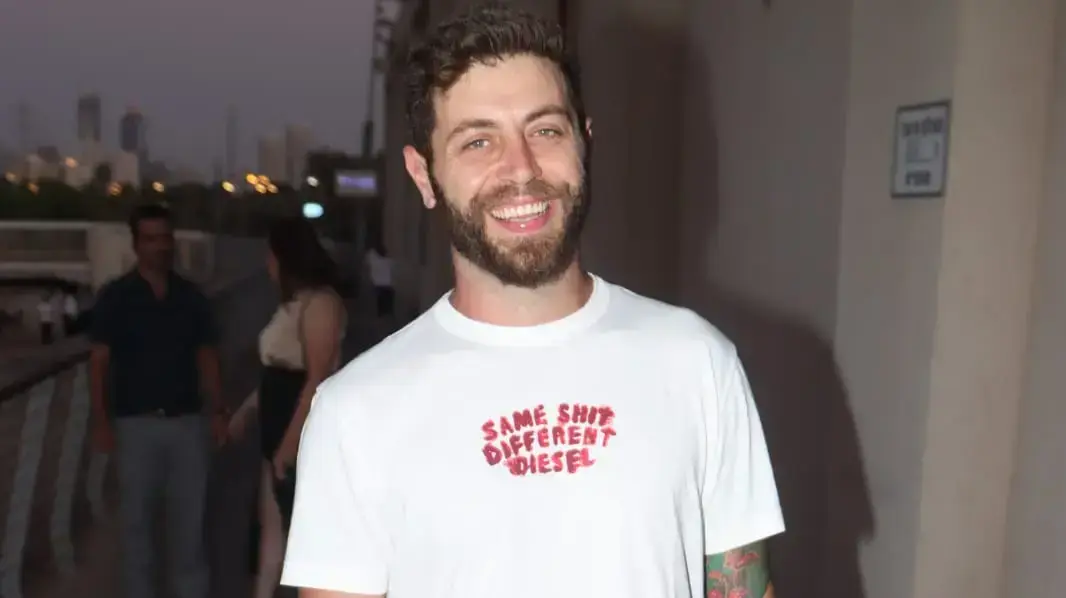


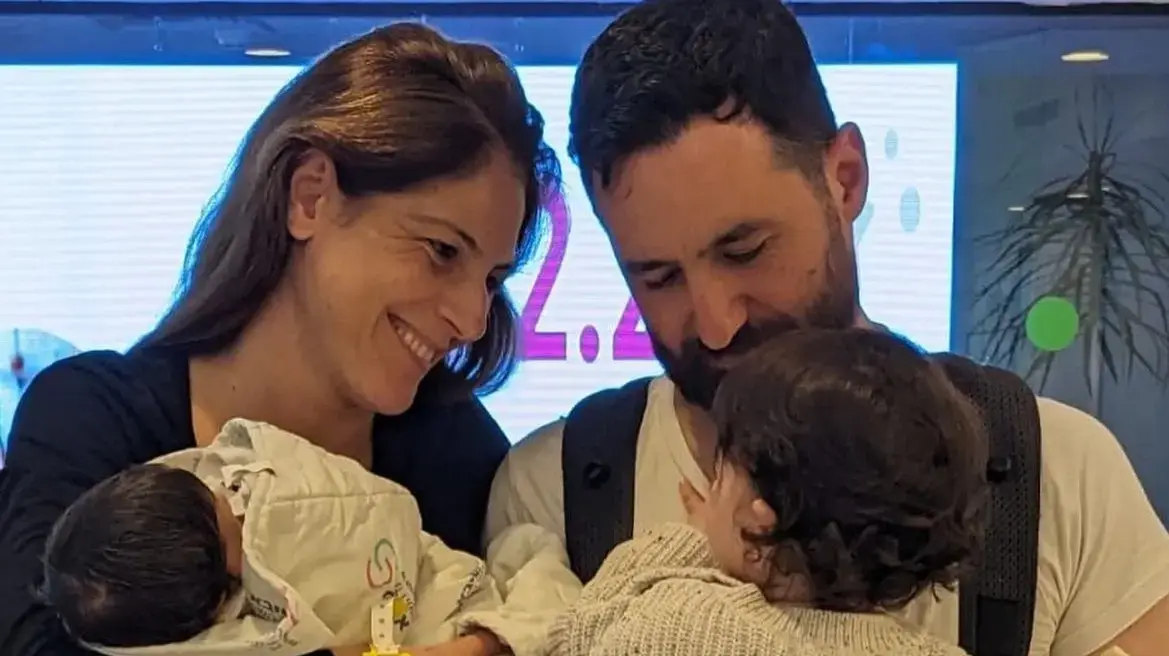
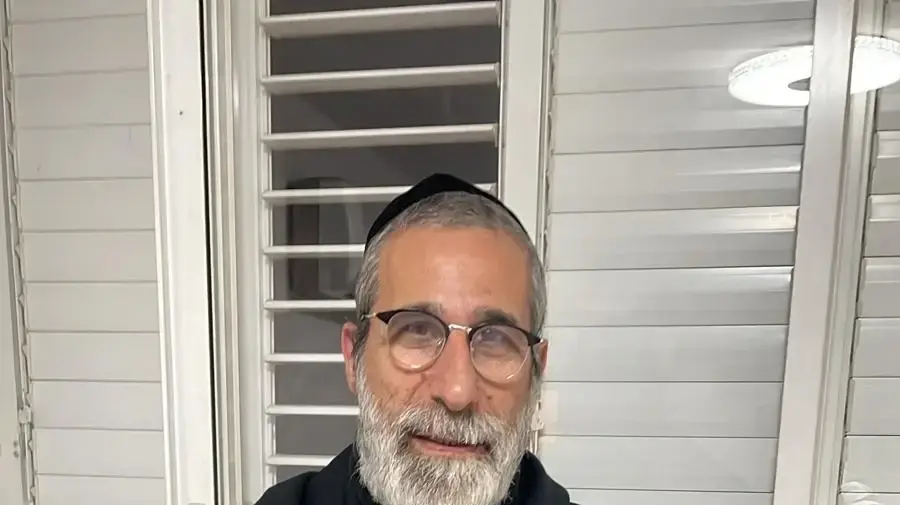


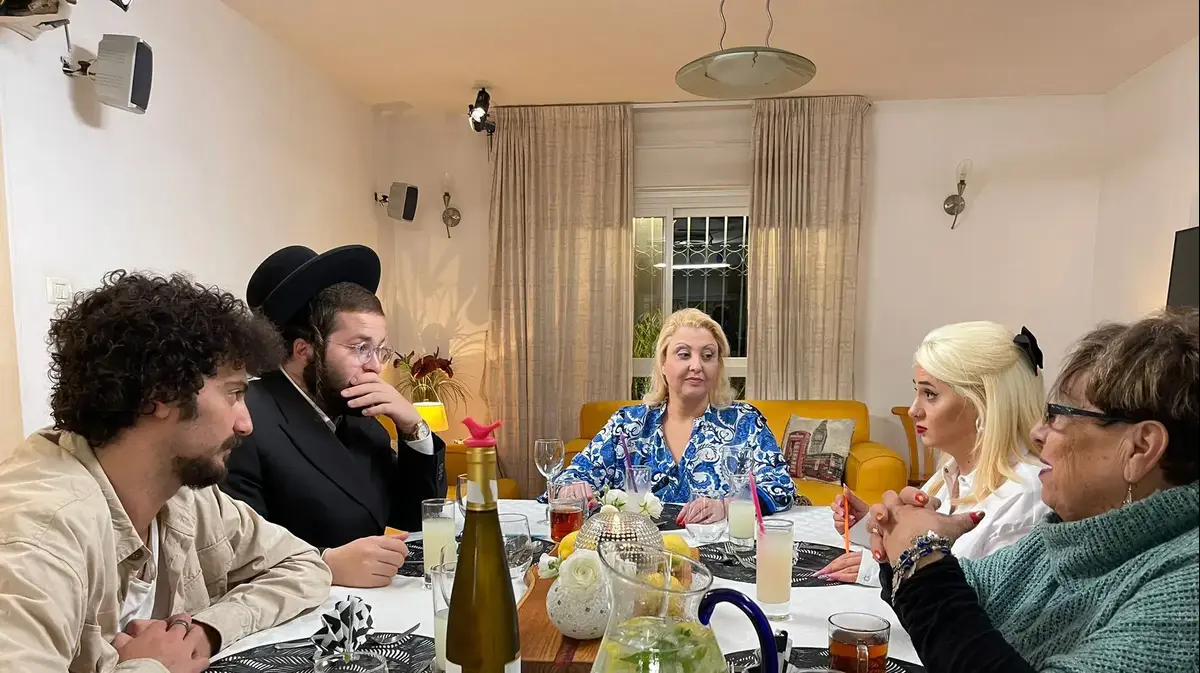
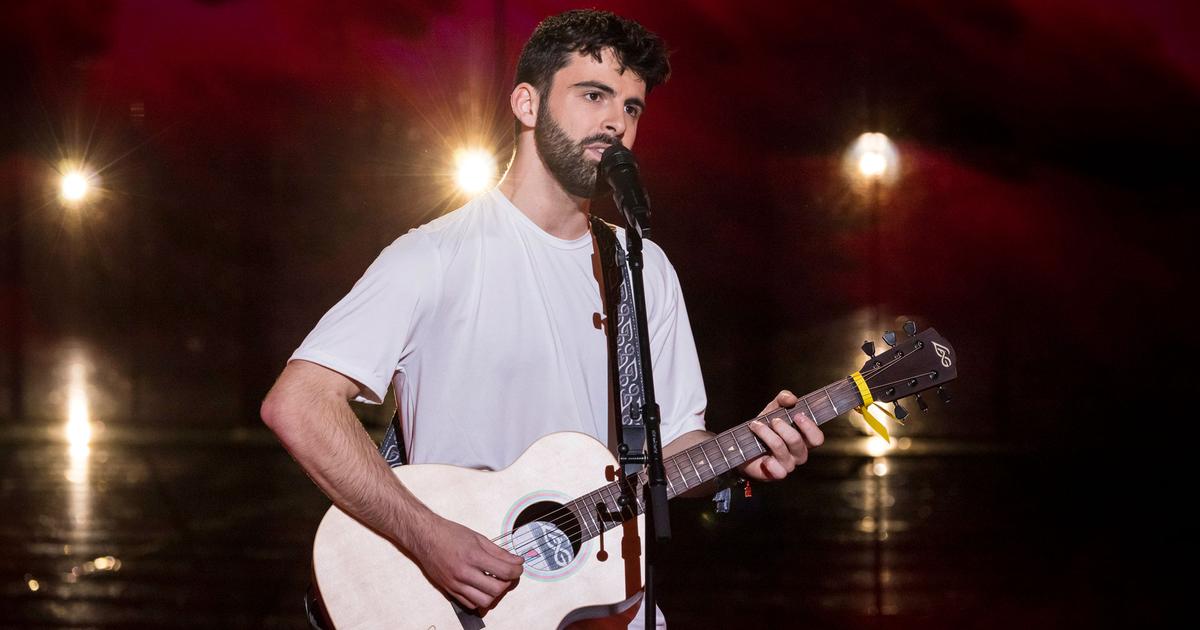




/cloudfront-eu-central-1.images.arcpublishing.com/prisa/EXJQILQR5QI7OMVRTERD7AEZAU.jpg)
